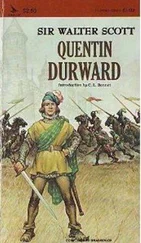Walter Scott - Letters on Demonology and Witchcraft
Здесь есть возможность читать онлайн «Walter Scott - Letters on Demonology and Witchcraft» весь текст электронной книги совершенно бесплатно (целиком полную версию без сокращений). В некоторых случаях можно слушать аудио, скачать через торрент в формате fb2 и присутствует краткое содержание. Жанр: История, на английском языке. Описание произведения, (предисловие) а так же отзывы посетителей доступны на портале библиотеки ЛибКат.
- Название:Letters on Demonology and Witchcraft
- Автор:
- Жанр:
- Год:неизвестен
- ISBN:нет данных
- Рейтинг книги:4 / 5. Голосов: 1
-
Избранное:Добавить в избранное
- Отзывы:
-
Ваша оценка:
- 80
- 1
- 2
- 3
- 4
- 5
Letters on Demonology and Witchcraft: краткое содержание, описание и аннотация
Предлагаем к чтению аннотацию, описание, краткое содержание или предисловие (зависит от того, что написал сам автор книги «Letters on Demonology and Witchcraft»). Если вы не нашли необходимую информацию о книге — напишите в комментариях, мы постараемся отыскать её.
Letters on Demonology and Witchcraft — читать онлайн бесплатно полную книгу (весь текст) целиком
Ниже представлен текст книги, разбитый по страницам. Система сохранения места последней прочитанной страницы, позволяет с удобством читать онлайн бесплатно книгу «Letters on Demonology and Witchcraft», без необходимости каждый раз заново искать на чём Вы остановились. Поставьте закладку, и сможете в любой момент перейти на страницу, на которой закончили чтение.
Интервал:
Закладка:
Such imaginary scenes, or make-believe stories, are the common amusement of lively children; and most readers may remember having had some Utopia of their own. But the nursery drama of Miss Throgmorton had a horrible conclusion. This young lady and her sisters were supposed to be haunted by nine spirits, dispatched by the wicked Mother Samuel for that purpose. The sapient parents heard one part of the dialogue, when the children in their fits returned answers, as was supposed, to the spirits who afflicted them; and when the patients from time to time recovered, they furnished the counterpart by telling what the spirits had said to them. The names of the spirits were Pluck, Hardname, Catch, Blue, and three Smacks, who were cousins. Mrs. Joan Throgmorton, the eldest (who, like other young women of her age, about fifteen, had some disease on her nerves, and whose fancy ran apparently on love and gallantry), supposed that one of the Smacks was her lover, did battle for her with the less friendly spirits, and promised to protect her against Mother Samuel herself; and the following curious extract will show on what a footing of familiarity the damsel stood with her spiritual gallant: "From whence come you, Mr. Smack?" says the afflicted young lady; "and what news do you bring?" Smack, nothing abashed, informed her he came from fighting with Pluck: the weapons, great cowl-staves; the scene, a ruinous bakehouse in Dame Samuel's yard. "And who got the mastery, I pray you?" said the damsel. Smack answered, he had broken Pluck's head. "I would," said the damsel, "he had broken your neck also." "Is that the thanks I am to have for my labour?" said the disappointed Smack. "Look you for thanks at my hand?" said the distressed maiden. "I would you were all hanged up against each other, with your dame for company, for you are all naught." On this repulse, exit Smack, and enter Pluck, Blue, and Catch, the first with his head broken, the other limping, and the third with his arm in a sling, all trophies of Smack's victory. They disappeared after having threatened vengeance upon the conquering Smack. However, he soon afterwards appeared with his laurels. He told her of his various conflicts. "I wonder," said Mrs. Joan, or Jane, "that you are able to beat them; you are little, and they very big." "He cared not for that," he replied; "he would beat the best two of them, and his cousins Smacks would beat the other two." This most pitiful mirth, for such it certainly is, was mixed with tragedy enough. Miss Throgmorton and her sisters railed against Darne Samuel; and when Mr. Throgmorton brought her to his house by force, the little fiends longed to draw blood of her, scratch her, and torture her, as the witch-creed of that period recommended; yet the poor woman incurred deeper suspicion when she expressed a wish to leave a house where she was so coarsely treated and lay under such odious suspicions.
It was in vain that this unhappy creature endeavoured to avert their resentment by submitting to all the ill-usage they chose to put upon her; in vain that she underwent unresistingly the worst usage at the hand of Lady Cromwell, her landlady, who, abusing her with the worst epithets, tore her cap from her head, clipped out some of her hair, and gave it to Mrs. Throgmorton to burn it for a counter-charm. Nay, Mother Samuel's complaisance in the latter case only led to a new charge. It happened that the Lady Cromwell, on her return home, dreamed of her day's work, and especially of the old dame and her cat; and, as her ladyship died in a year and quarter from that very day, it was sagaciously concluded that she must have fallen a victim to the witcheries of the terrible Dame Samuel. Mr. Throgmorton also compelled the old woman and her daughter to use expressions which put their lives in the power of these malignant children, who had carried on the farce so long that they could not well escape from their own web of deceit but by the death of these helpless creatures. For example, the prisoner, Dame Samuel, was induced to say to the supposed spirit, "As I am a witch, and a causer of Lady Cromwell's death, I charge thee to come out of the maiden." The girl lay still; and this was accounted a proof that the poor woman, who, only subdued and crushed by terror and tyranny, did as she was bidden, was a witch. One is ashamed of an English judge and jury when it must be repeated that the evidence of these enthusiastic and giddy-pated girls was deemed sufficient to the condemnation of three innocent persons. Goody Samuel, indeed, was at length worried into a confession of her guilt by the various vexations which were practised on her. But her husband and daughter continued to maintain their innocence. The last showed a high spirit and proud value for her character. She was advised by some, who pitied her youth, to gain at least a respite by pleading pregnancy; to which she answered disdainfully, "No, I will not be both held witch and strumpet!" The mother, to show her sanity of mind and the real value of her confession, caught at the advice recommended to her daughter. As her years put such a plea out of the question, there was a laugh among the unfeeling audience, in which the poor old victim joined loudly and heartily. Some there were who thought it no joking matter, and were inclined to think they had a Joanna Southcote before them, and that the devil must be the father. These unfortunate Samuels were condemned at Huntingdon, before Mr. Justice Fenner, 4th April, 1593. It was a singular case to be commemorated by an annual lecture, as provided by Sir Samuel Cromwell, for the purposes of justice were never so perverted, nor her sword turned to a more flagrant murder.
We may here mention, though mainly for the sake of contrast, the much-disputed case of Jane Wenham, the Witch of Walkerne, as she was termed, which was of a much later date. Some of the country clergy were carried away by the land-flood of superstition in this instance also and not only encouraged the charge, but gave their countenance to some of the ridiculous and indecent tricks resorted to as proofs of witchcraft by the lowest vulgar. But the good sense of the judge, seconded by that of other reflecting and sensible persons, saved the country from the ultimate disgrace attendant on too many of these unhallowed trials. The usual sort of evidence was brought against this poor woman, by pretences of bewitched persons vomiting fire—a trick very easy to those who chose to exhibit such a piece of jugglery amongst such as rather desire to be taken in by it than to detect the imposture. The witchfinder practised upon her the most vulgar and ridiculous tricks or charms; and out of a perverted examination they drew what they called a confession, though of a forced and mutilated character. Under such proof the jury brought her in guilty, and she was necessarily condemned to die. More fortunate, however, than many persons placed in the like circumstances, Jane Wenham was tried before a sensible and philosophic judge, who could not understand that the life of an Englishwoman, however mean, should be taken away by a set of barbarous tricks and experiments, the efficacy of which depended on popular credulity. He reprieved the witch before he left the assize-town. The rest of the history is equally a contrast to some we have told and others we shall have to recount. A humane and high-spirited gentleman, Colonel Plummer of Gilston, putting at defiance popular calumny, placed the poor old woman in a small house near his own and under his immediate protection. Here she lived and died, in honest and fair reputation, edifying her visitors by her accuracy and attention in repeating her devotions; and, removed from her brutal and malignant neighbours, never afterwards gave the slightest cause of suspicion or offence till her dying day. As this was one of the last cases of conviction in England, Dr Hutchison has been led to dilate upon it with some strength of eloquence as well as argument.
Читать дальшеИнтервал:
Закладка:
Похожие книги на «Letters on Demonology and Witchcraft»
Представляем Вашему вниманию похожие книги на «Letters on Demonology and Witchcraft» списком для выбора. Мы отобрали схожую по названию и смыслу литературу в надежде предоставить читателям больше вариантов отыскать новые, интересные, ещё непрочитанные произведения.
Обсуждение, отзывы о книге «Letters on Demonology and Witchcraft» и просто собственные мнения читателей. Оставьте ваши комментарии, напишите, что Вы думаете о произведении, его смысле или главных героях. Укажите что конкретно понравилось, а что нет, и почему Вы так считаете.









